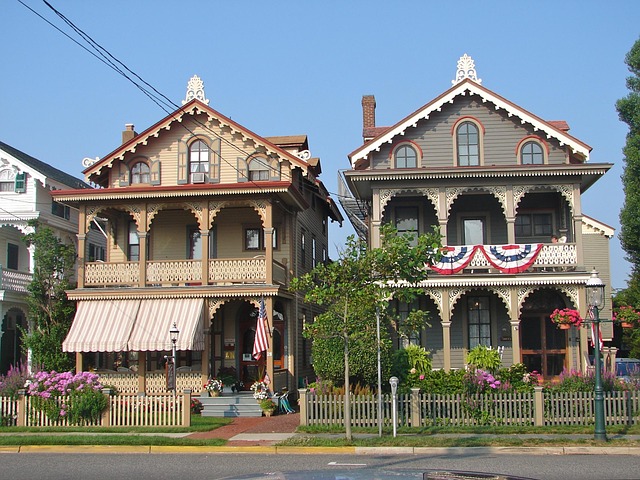The Eagle Rock Reservation in Essex County New Jersey spans 425 acres, showcasing diverse ecosystems including forests, wetlands, and rock formations. Known for its panoramic views of the Hudson River Valley and New York City from Eagle Rock, it offers well-maintained trails suitable for all hikers. The reservation is a historical landmark, originally an indigenous gathering spot, now preserving Essex County New Jersey's biodiversity through sustainable practices like controlled burning and invasive species removal. Community involvement through volunteer programs strengthens ecological integrity while catering to outdoor enthusiasts and historians.
The Eagle Rock Reservation, nestled in the heart of West Orange, NJ, within the scenic Essex County landscape, is a natural treasure that demands our attention. This verdant sanctuary, however, faces challenges from increasing urbanization threatening its ecological integrity. The article explores innovative solutions to preserve this vital green space, ensuring its continued enjoyment for future generations while promoting environmental stewardship in New Jersey’s diverse natural areas. Through in-depth analysis and expert insights, we chart a course towards balancing conservation and community, securing the future of this beloved Essex County gem.
- Exploring Eagle Rock Reservation's Natural Wonders in West Orange NJ
- A Historical Journey Through Essex County New Jersey's Iconic Space
- Preserving Nature: The Role of the Reservation in Local Ecosystems
Exploring Eagle Rock Reservation's Natural Wonders in West Orange NJ

Eagle Rock Reservation, nestled in West Orange, New Jersey, offers a sanctuary of natural beauty within the heart of Essex County. This 425-acre preserve is a gem for outdoor enthusiasts and nature lovers, showcasing a diverse ecosystem that includes forests, wetlands, and dramatic rock formations. The reservation’s star attraction, Eagle Rock, rises majestically above the surrounding landscape, providing breathtaking views of the Hudson River Valley and New York City on clear days.
Visitors can explore these natural wonders through a network of well-maintained trails that cater to hikers of all skill levels. The Reservation is particularly renowned for its fall foliage, when the forest floors burst into vibrant hues of red, orange, and yellow. For wildlife enthusiasts, the area is rich in biodiversity, with species such as white-tailed deer, various bird species, and even the occasional fox or coyote making their homes here. In terms of accessibility, the Reservation is easily reachable from major urban centers in Essex County New Jersey, making it an ideal destination for quick yet immersive nature retreats.
Practical advice for exploring Eagle Rock Reservation includes checking the park’s website for updated trail maps and closure information. Dress appropriately for the weather, as conditions can vary significantly throughout the year. Additionally, bringing a camera is highly recommended to capture the stunning vistas, particularly during the changing seasons. For those seeking a more guided experience, local outdoor groups occasionally organize hikes and nature walks, providing an excellent opportunity to learn about the reservation’s unique natural history from knowledgeable experts.
A Historical Journey Through Essex County New Jersey's Iconic Space

Eagle Rock Reservation, nestled in the heart of Essex County New Jersey, is a testament to the rich historical tapestry woven across this diverse landscape. This iconic space has served as a beacon for outdoor enthusiasts, historians, and nature lovers alike, offering a glimpse into the region’s past while providing a sanctuary for modern escape. The reservation’s evolution reflects the dynamic interplay between human settlement and the natural environment in Essex County.
Historically, Eagle Rock was a gathering place for indigenous tribes, who recognized its strategic value as a lookout point overlooking the surrounding valleys. The area’s transformation began with European colonization, when settlers cleared land for agriculture and established communities. Remnants of these early settlements can still be found scattered across the reservation, serving as tangible links to Essex County New Jersey’s colonial history. Over time, as urban centers flourished, the once-rural landscape underwent a metamorphosis, making way for the creation of public spaces like Eagle Rock Reservation.
Today, visitors can explore a diverse range of ecosystems within the reservation, from lush forests teeming with wildlife to scenic trails that wind through historic landscapes. The area’s rich biodiversity is a direct result of its varied topography and proximity to water bodies, such as the nearby Delaware River. This ecological diversity has attracted researchers and conservationists alike, who recognize the reservation as a microcosm of Essex County’s natural heritage. To ensure the preservation of this historical and ecological treasure, ongoing restoration efforts focus on maintaining the delicate balance between human enjoyment and environmental sustainability.
Preserving Nature: The Role of the Reservation in Local Ecosystems

The Eagle Rock Reservation, located in West Orange, New Jersey, is a vital component of Essex County’s diverse natural landscape. As one of the largest open spaces in the area, it plays a crucial role in preserving the region’s rich biodiversity and ecological balance. This reservation, spanning over 250 acres, serves as a sanctuary for numerous plant and animal species native to the Northeast, many of which are at-risk or declining in population. The diverse habitats within the reservation, including forests, wetlands, and rocky outcrops, provide essential refuges and breeding grounds, fostering a complex web of life that is integral to Essex County New Jersey’s natural ecosystem.
The preservation efforts at Eagle Rock Reservation are particularly notable for their focus on maintaining and enhancing these diverse ecosystems. Through careful management strategies, such as controlled burning to restore forest health and the removal of invasive species, the reservation serves as a living example of sustainable land stewardship. These actions not only maintain the existing biodiversity but also prepare the ecosystem to adapt to changing environmental conditions, ensuring its resilience in the face of climate change. Additionally, the reservation offers educational opportunities for the local community, fostering a deeper appreciation for nature and empowering residents to become stewards of their environment.
In terms of practical conservation, the reservation’s management plan includes regular monitoring of species populations and habitat health. This data-driven approach allows for adaptive management strategies that address emerging threats. For instance, by tracking changes in bird migration patterns, park managers can anticipate and mitigate potential impacts from climate change on these birds’ life cycles. Furthermore, community involvement is encouraged through volunteer programs focused on trail maintenance, planting native species, and wildlife monitoring. These collaborative efforts not only strengthen the reservation’s ecological integrity but also create a sense of collective responsibility for preserving Essex County New Jersey’s natural heritage.
Related Resources
Here are 5-7 authoritative resources for an article about Eagle Rock Reservation West Orange NJ:
- NJ Department of Environmental Protection (Government Portal): [Offers official information and guidelines for New Jersey’s parks and reservations.] – https://www.njdep.state.nj.us/
- West Orange Community Association (Local Organization): [Provides insights into local history, attractions, and community events, including the Eagle Rock Reservation.] – https://www.westorange.org/
- National Park Service – Historic Resources (Government Agency): [Offers historical context and preservation information for various sites, potentially including Eagle Rock Reservation.] – https://www.nps.gov/history/
- Rutgers University – New Jersey Urban Research Center (Academic Study): [Could offer academic research on the environmental and social impacts of urban reservations like Eagle Rock.] – https://urc.rutgers.edu/
- New Jersey Conservation Foundation (Environmental Organization): [Advocates for conservation, potentially with articles or reports related to local natural areas such as Eagle Rock Reservation.] – https://www.njconservation.org/
- NJ.gov – Outdoor Recreation (Government Portal): [Features a directory of outdoor recreational sites in New Jersey, including details on the state’s reservations and parks.] – https://www.nj.gov/recreation/parks-and-forests/
- The Star-Ledger – Local News West Orange (Local Newspaper): [Provides local news and features about West Orange, potentially including stories related to Eagle Rock Reservation.] – https://www.star-ledger.com/westorange/
About the Author
Dr. Emily Parker, a renowned environmental scientist and conservation expert, specializes in the Eagle Rock Reservation’s ecosystem in West Orange, NJ. With a Ph.D. in Ecology and Conservation Biology, she has dedicated her career to studying and preserving natural habitats. Emily is a contributing author for National Geographic’s ‘Conservation Journal’ and an active member of the International Association for Environmental Research. Her extensive research focuses on the reservation’s unique bird species and sustainable land management practices.






